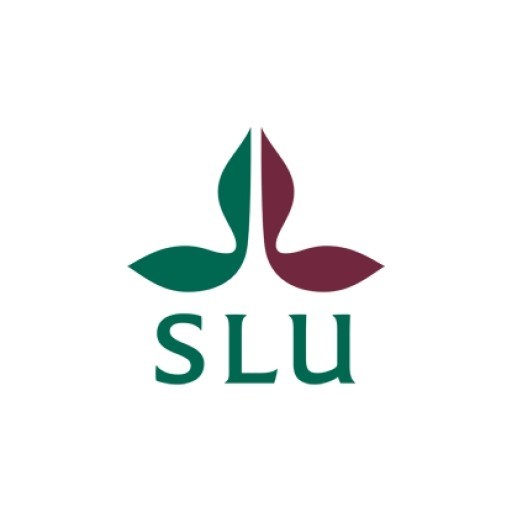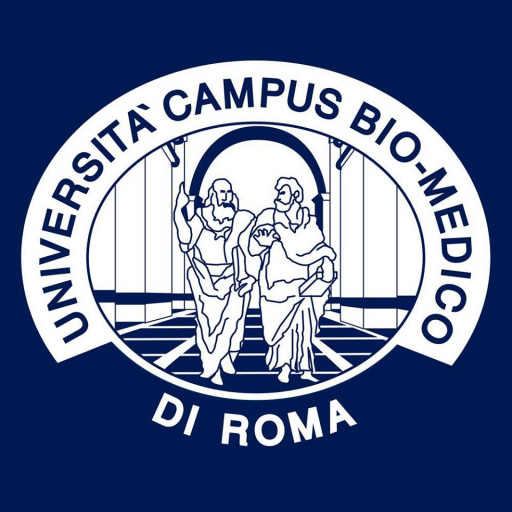Photos of university / #slu.student
The Master's Programme in Sustainable Development at the Swedish University of Agricultural Sciences offers an in-depth exploration of the complex interplay between environmental, social, and economic dimensions of sustainability. Designed to equip students with the knowledge and skills necessary to address global and local challenges related to sustainability, the program emphasizes interdisciplinary approaches and practical problem-solving. Throughout the studies, students engage with topics such as sustainable resource management, climate change mitigation and adaptation, environmental policy, socio-economic development, and ethical considerations in sustainability efforts. The curriculum combines theoretical coursework with applied projects, fieldwork, and collaborations with industry and governmental organizations, ensuring that students gain both academic knowledge and real-world experience. The programme prepares graduates for careers in various sectors, including environmental consultancy, sustainable development planning, policy analysis, and research institutions. It fosters critical thinking, innovative solutions, and a proactive attitude towards implementing sustainable practices in diverse contexts. Students have opportunities to specialize within areas such as conservation, sustainable agriculture, urban sustainability, or global development. The programme values multidisciplinary perspectives and encourages international collaboration, making it suitable for students from diverse backgrounds who are passionate about creating a more sustainable future. Upon completion, graduates will possess a comprehensive understanding of sustainability issues and the skills needed to contribute effectively to sustainable development policies and initiatives worldwide.
The Sustainable Development master’s program at the Swedish University of Agricultural Sciences is a comprehensive and interdisciplinary education designed to equip students with the knowledge and skills necessary to address global sustainability challenges. The program emphasizes the importance of integrating ecological, economic, and social perspectives to foster sustainable development in various sectors and communities worldwide. Throughout the program, students explore key themes such as environmental management, renewable energy, climate change, biodiversity, resource conservation, and social responsibility. The curriculum combines theoretical foundations with practical applications, encouraging students to develop innovative solutions for sustainability issues through project work, case studies, and field activities.
Students will engage with a wide range of disciplines, including environmental science, economics, social sciences, and policy analysis, to understand the complex relationships that underpin sustainable development. The program promotes critical thinking and ethical considerations, preparing graduates to contribute effectively to policy-making, strategic planning, and project implementation in both public and private sectors. Collaboration and communication skills are prioritized to enable students to work in multidisciplinary teams and engage with diverse stakeholders, including policymakers, community members, and industry representatives.
With a strong emphasis on real-world relevance, the program includes opportunities for internships and collaborations with organizations dedicated to sustainable development. Graduates will be well-positioned to work in areas such as environmental consultancy, international development agencies, governmental organizations, non-governmental organizations, and research institutions. The program also provides a solid foundation for students interested in further research or doctoral studies related to sustainability. By the end of the program, students will have developed a critical understanding of the core principles and practices needed to promote sustainable development locally, nationally, and globally.
Program Requirements: The Master’s Programme in Sustainable Development at the Swedish University of Agricultural Sciences requires applicants to hold a Bachelor's degree or an equivalent qualification in a relevant field such as environmental science, agriculture, forestry, or natural resource management. The program emphasizes multidisciplinary approaches to solving global sustainability challenges, demanding strong foundational knowledge in ecological, social, and economic aspects of development. Candidates are expected to demonstrate proficiency in English, typically via verified test scores such as IELTS or TOEFL, ensuring their ability to engage with advanced academic texts and participate in international discussions. Prior relevant experience, including project work or research related to sustainability, is advantageous and may strengthen an application. The programme is designed for students with a keen interest in innovative solutions for sustainable development, and applicants should showcase motivation and commitment to international development issues. The application process involves submitting academic transcripts, a curriculum vitae, a statement of purpose explaining motivation and future goals, and references from prior academic supervisors or professional contacts. The university values diversity and encourages applicants from various backgrounds to apply, fostering an international learning environment. The curriculum combines theoretical courses, practical projects, and field studies, requiring active engagement and a commitment to interdisciplinary teamwork. No specific prerequisite courses are mandated, but relevant coursework in ecology, economics, social sciences, or policy analysis can be a strong foundation. The programme is delivered through a combination of lectures, seminars, workshops, and independent research, culminating in a thesis project that addresses real-world sustainability issues. All students are also expected to participate in the program's collaborative activities and contribute to scholarly discussions and community engagement initiatives.
The financing of the Sustainable Development program at the Swedish University of Agricultural Sciences primarily relies on a combination of government funding, student tuition fees (where applicable), scholarships, and external grants. As a Swedish national or resident, students often benefit from state-funded education, which significantly reduces or eliminates tuition fees, making higher education accessible without direct financial burden. International students may be required to pay tuition fees, and these are set annually by the university, with various scholarship options available to support their studies. The university also offers scholarships based on academic merit, financial need, or specific regional criteria to help cover living expenses and study costs. Additionally, students can seek external funding sources such as Erasmus+ grants, which facilitate mobility and exchange programs within Europe, or research grants from Nordic and EU agencies focusing on sustainable development and environmental research. The university encourages students to explore part-time employment opportunities, internships, and project collaborations with governmental or private entities, which can provide supplementary income and valuable practical experience. Moreover, students enrolled in the program might have access to specific funding streams aimed at advancing sustainable development initiatives locally or globally, often supported by governmental agencies or international organizations. The university itself invests resources into research, teaching infrastructure, and international collaborations, which indirectly support students through the quality and scope of education provided. Overall, the financial structure supporting the Sustainable Development program is designed to ensure students can focus on their studies without undue financial hardship, with multiple avenues of funding and financial support tailored to diverse student needs and backgrounds.
The Master’s programme in Sustainable Development at the Swedish University of Agricultural Sciences (SLU) is designed to provide students with comprehensive knowledge and practical skills necessary to address global and local sustainability challenges. The programme emphasizes an interdisciplinary approach, integrating ecological, economic, and social dimensions of sustainability to prepare graduates for work in policy, research, consultancy, and development sectors.
Students enrolled in this programme will explore core topics such as environmental management, sustainable resource use, climate change mitigation and adaptation, social innovation, and governance related to sustainable development. The curriculum combines theoretical coursework with practical projects, field studies, and collaborations with the private sector and public organizations. Throughout the programme, students are encouraged to develop critical thinking, problem-solving abilities, and communication skills to effectively contribute to sustainable solutions in diverse contexts.
The programme typically spans two years, with coursework in the first year focusing on foundational theories and methods in sustainable development, followed by a second-year specialization or thesis work. Students may choose electives based on their specific interests within areas like sustainable agriculture, forestry, urban development, or global environmental governance. The programme is delivered in English, attracting an international student body, and is supported by experienced faculty members who are active researchers in sustainability science.
Graduates of this programme are well-equipped to pursue careers in national and international organizations, governmental agencies, NGOs, consultancy firms, or engage in doctoral studies. The university's strong emphasis on sustainability research, combined with its local and global network, provides students with valuable opportunities for internships, research collaborations, and professional development. The programme aims to contribute to the global efforts towards achieving the Sustainable Development Goals (SDGs) by fostering a new generation of environmentally conscious and socially responsible leaders.
Overall, the Master’s in Sustainable Development at SLU is a rigorous and multidisciplinary programme designed to equip students with the knowledge, skills, and motivation to promote sustainable practices and policies across various sectors and regions worldwide.









